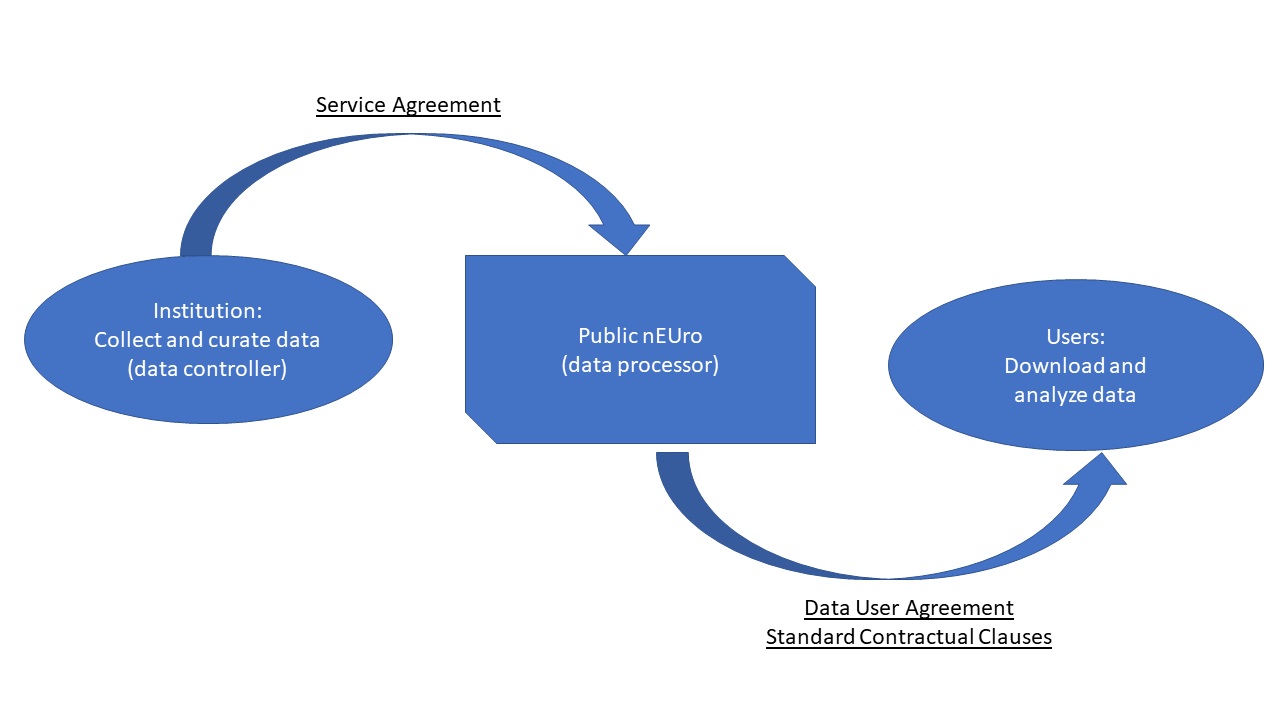Overview
This overview aims at giving a general understanding of how Public-nEUro operates and how it is governed. It remains general to increase readability, and to be inclusive for non-specialist readers. The following sections gives an overview while the legal discussion for sharing research personal data can be found on a dedicated post.
Open NeuroPET refers to a group of people working on a project aiming at making brain positron emission tomography (PET) data more open following FAIR principles. Those principles are that research data should be Findable, Accessible, Interoperable and Reusable (Wilkinson et al. (2016)). The Public-nEUro Data sharing policy has been prepared and reviewed by that group.
Public-nEUro is the organization/repository that allows brain imaging data to be shared publicly following the European General Data Protection Regulation. Sharing publicly means that one or more publicly available records of the data exist - but data are not open access.
nEUrothenticate is the informatics platform that allows registering dataset authors, users, users’institutions, and datasets, linking them, and providing access to the data.
Data sharing is organised among 3 parties: people who acquire the data experimentally (the authors, a.k.a data controller), people who provide a service that enables public sharing of the data (public-nEUro, a.k.a data processor) and people who download the data (the users). The platform operates as an intermediate between the authors and the users (see figure). It provides an infrastructure and service for authors that enable FAIR and GDPR-compliant data sharing. For users, it provides access to EU personal data.

FAIR data sharing
Findability is ensured by using metadata schemas (i.e., small text based file describing the data at a group level, without the presence of personal data), making data findable via other platforms.
Accessibility is ensured by the Cloud service that allows downloading datasets for identified users. It is further supported by DataLad, a free and open-source distributed data management system.
Interoperability and Reusability are ensured by curating datasets or requesting users to curate their datasets using the Brain Imaging Data Structure, an international standard to organise and name brain imaging files and add metadata (information about the data).